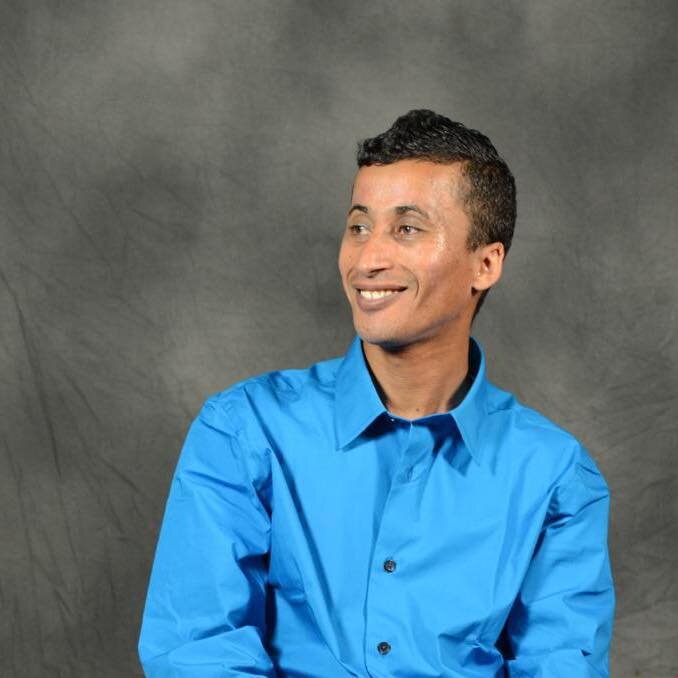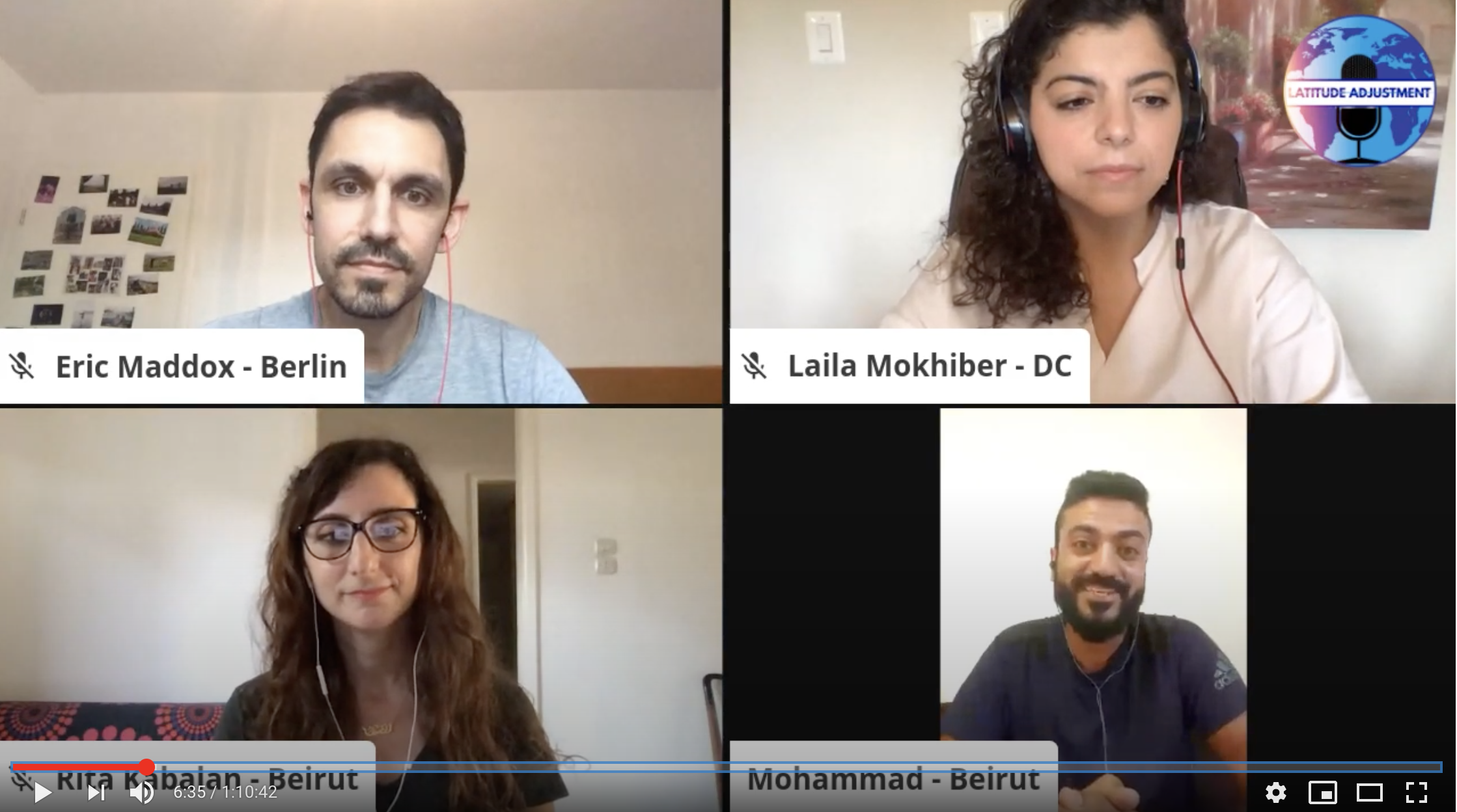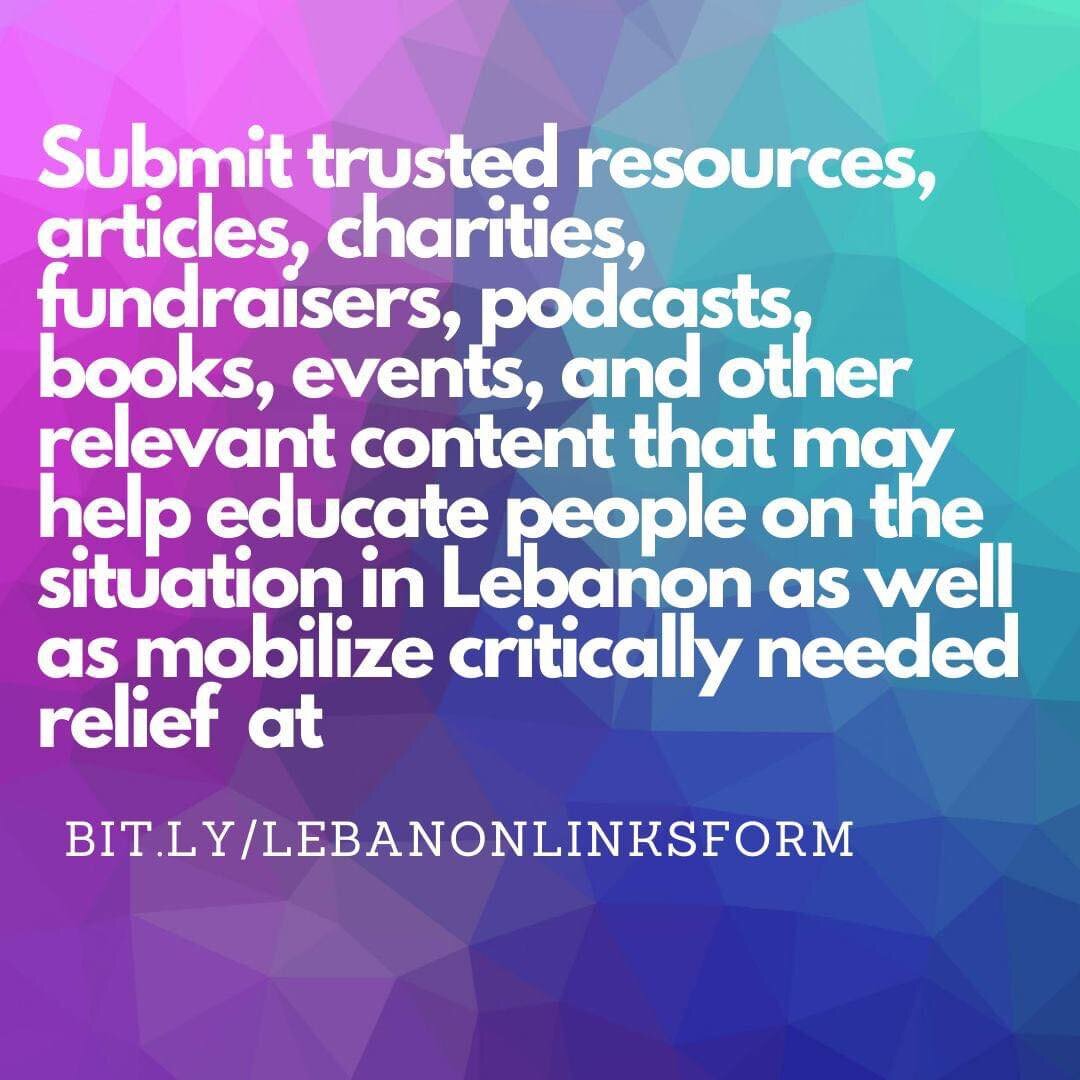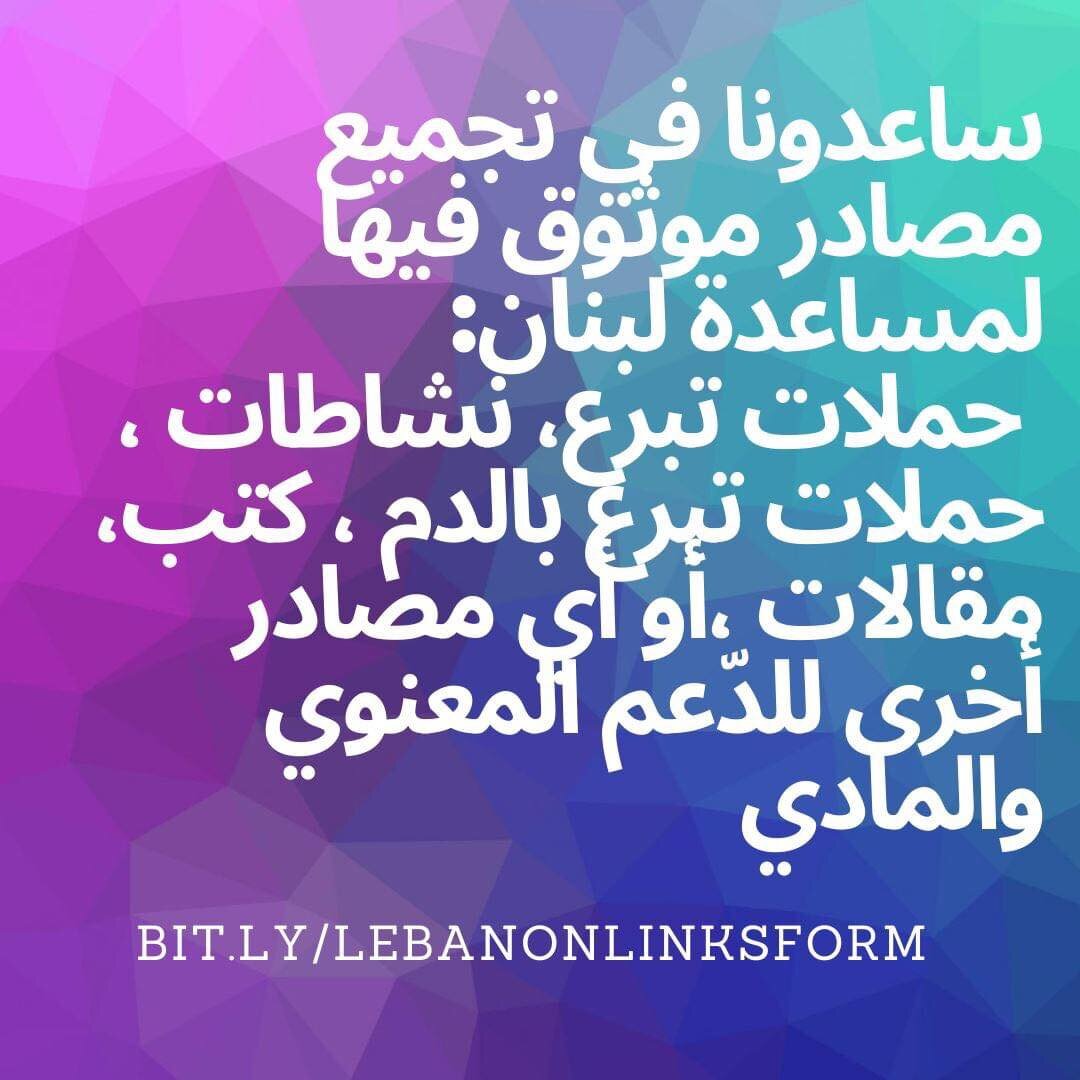For this return to our live video broadcasts we pass the mic over to our recent Latitude Adjustment Podcast Academy graduates. Our first graduating class of asylum seekers on Lesvos worked very hard over the course of five weeks to learn about the principles and mechanics of podcasting and to bring you their first episodes. Our panel focussed on their personal stories as well as the challenges we overcame together to bring you their podcasts episodes.
All of our students are also students of ReFocus Media Labs, and ReFocus co-founders Douglas and Sonia joined us and their students for a remote reunion.
Live 10: Migrant Detention Centers in the US
This Latitude Adjustment Podcast live discussion was with Amilcar Valencia, founder of El Refugio, an organization that offers supports to families of detainees at the Stewart Detention Center in the US state of Georgia. Like many migrant detention centers scattered across the US, the center in Stewart is the destination for people who have been taken into detention from across the US, and like most of these facilities it is run by a private for-profit corporation.
Amilcar spoke to us about his own experiences as an immigrant from El Salvador, the struggles that separated families have to endure when family members are detained, what has changed (and what hasn't) under the Trump administration, and what we can do to help bring about overdue changes to create a more humane immigration policy in the US.
Live 9: Wildfire Reporting and Indigenous Fire Management Practices
Our two panelists include a veteran environmental journalist, April Reese, and Stephan Cheney, an expert on indigenous wildfire prevention and management practices.
This year started out with biblical scale wildfires in Australia and appears to be ending with more apocalyptic fires raging across the Western United States. For this live event we welcome you to share your questions in comments as we host two guest panelists with a wealth of experience on this critical topic.
Beyond the burning of landscapes, what impacts are these wildfires having on ecosystems, economies, and on vulnerable populations?
What are “cultural burns”, who uses them, and what is their cultural and practical value?
April Reese is a former Latitude Adjustment Podcast Guest (episode 14) and a veteran environmental journalist with more than 20 years experience reporting across the US for publications such as The Guardian, Outside, Scientific American, Popular Science, Science, Nature, Audubon, National Geographic News, Smithsonian.com, Yale Environment 360, High Country News, and TheAtlantic.com, and Discover (where she was an editor). April also lived in and reported from Australia between 2016-17. April is currently based in Santa Fe, New Mexico.
Stephan Cheney is Lakota of the Kul Wicasa Oyate and first moved to Wiyot Territory (Northern California) to work as a wildlife firefighter and has more than six years experience in this field. Stephan also works for the Seventh Generation Fund for Indigenous Peoples and is Based in Humboldt County, California.
Below you find an array of recommended education materials, action items, and links to the work and organizations of our guests.
Live 8: Life After Moria Refugee Camp
For this live edition of Latitude Adjustment Podcast we host another panel discussion with representatives from Lesvos Solidarity - Pikpa, Refocus Media Labs, and Are You Syrious?
On the evenings of September 8th and 9th Moria Camp on Lesvos, the largest refugee camp in Europe, was gutted by a series of fires and the majority of its 13,000 residents were instantly made homeless. Thankfully there have been no fatalities or serious injuries reported. In the days that followed camp residents attempted to walk the roughly 10 kilometers to the main town of Mytilini, hoping to demonstrate for movement to the Greek mainland and for humane living conditions. But over the next several days the roads were blocked off by police. Peaceful demonstrations were suppressed with teargas during the day while thousands of homeless former Moria residents were forced to sleep on the side of the highway at night.
In the past few days a new makeshift camp has been constructed right next to the sea to house some of those effected, but there are now reports of inhumane conditions, neglect, and heavy handed treatment by the authorities in and around this new camp. What's more, the media and NGOs have been largely barred from entry to the area which has a heavy police presence.
And all of this has taken place under the looming threat of COVID which, despite conditions all but engineered to guarantee an outbreak of multiple public health catastrophes, had been miraculously kept at bay until more than 30 cases were reported just before the fire. On Wednesday the EU released the details of a proposed "pact" between member states aimed at reforming its migration and asylum processes. The pact has already been met with criticism by groups like Save the Children, which suggest that the EU has not learned from its mistakes.
For more details on the pact you can check this post by Are You Syrious: https://bit.ly/2FNb16W
For more info on how you can take action check this link and follow hashtag #EuropeMustAct https://linktr.ee/europemustact
Live 7: Anwar Alomaisi & Yemen
Unfortunately, but predictably, we had some technical issues with connecting to Anwar in Yemen, but we did manage to ask him a number of questions and to focus the rest of this event on some of the broader issues impacting Yemen. If you want to skip to the first segment where Anwar manages to join us it's at 25:00.
In February of this year Anwar Alomaisi, was deported without warning back to his home country of Yemen. Anwar had spent more than two decades in the US, was an accomplished wildlife photographer and a volunteer with his local fire department in the NYC area. For over 22 years he always made monthly check-ins with immigration officials, but earlier this year he was deported with no opportunity to see his attorney or to say goodbye to his family.
This decision was taken despite the fact that Anwar feared for his life due to his political activism and with his home country locked in a brutal civil war that has lead to the worst humanitarian crisis in the world according to the UN. We speak to Anwar in Aden this Friday, both about his case and about the current situation for the people of Yemen.
Also be sure to check out our previous episodes on Yemen:
Episode 31: Out of Options - Syrian and Yemeni in Malaysia
Episode 32: On the Ground in Yemen
Offer your support to Anwar and to the people of Yemen today!
#BringAnwarBack
Live 6: Migrant Worker Rights in Lebanon and the Gulf
For more info and to take immediate action check out the resources at the link below:
Latitude Adjustment Podcast’s Helpful Links and Resources: The Kafala System
Latitude Adjustment Podcast co-hosts Laila Mokhiber and Eric Maddox facilitated this panel discussion with guests in Beirut, Kuwait, and India, to discuss the conditions of migrant workers under the infamous Kafala system.
The Kafala or “sponsorship” system is used throughout the Gulf countries (as well as in Jordan and Lebanon) to monitor and to organize migrant laborers, from recruitment abroad to their management upon arrival, and particularly in the construction and domestic work sectors. Under the Kafala system a migrant worker’s presence in a host country is linked entirely to their employer, with the effect that it’s not only difficult or impossible to switch jobs, but all elements of their daily lives from access to their passports, to their freedom of movement, their living conditions, their ability to leave the country, and their basic dignities are all controlled by their employer. And there is often little to no regulation put in place to protect workers against exploitation and abuse. And abuse has been rampant for decades, from the sexual harassment and rape of domestic workers to squalid living conditions and work without pay for construction workers and manual laborers.
This dirty secret is often hidden inside of people’s homes or in isolated camps, and workers are rightly fearful of speaking out, so it is often very difficult to cover and to expose the abuses. For this reason we ask that you not only witness the brave testimony of our guests but that you share this post on your own social media space in order to amplify their voices, especially at a moment when coronavirus and economic crisis have led to a worsening of conditions for workers under this system. Also, be sure to check out Episode 49 where we discussed this topic in detail with Vani Saraswathi.
Live 5: On the Ground in Beirut
The recording of our live discussion is intended to serve to purposes: education and mobilization.
Please view this post as a simple tool that that you can share to educate the public about the current situation in Lebanon and to mobilize supports. See below for a list of links that will help you to direct your efforts to the most critical needs and to organizations working on the ground.
Context: On Tuesday, August 4th, a massive blast rocked Beirut's port when tons of improperly stored ammonium-nitrate was ignited by a fire in the storage facility. Within 24 hours of the explosion the death toll already numbered more than 130 people, approximately 5,000 injured and hundreds of thousands left homeless. This man-made disaster also came at a time of ongoing political and deep financial crisis in the tiny nation that is also home to the world's largest per-capita population of refugees. For more information on the political context for the ongoing protests and escalating crisis be sure to listen to Episode 52 with Jad Sakr in Beirut, from back in November of 2020. There have been new developments since our conversation, but the root causes that we discussed remain largely unaddressed.
Learn More and Provide Your Support Here:
Live 4: On the Ground in Idlib, Syria
Co-Hosts Laila Mokhiber and Eric Maddox talked to recent Latitude Adjustment Podcast guest Nour Qurmosh, a Syrian national working to deliver aid in Idlib, Syria.
We also recommend listening to our regular podcast interview with Nour, as we covered a lot of additional stories from 9 years of living under Syria's civil war in that first conversation. You can find that conversation in Episode 65 (link back to the podcast episode for information about Nour’s organization and how you can support it).
Live 3: Conditions for Asylum Seekers in Greece and The Balkans
Recording of our live panel discussion on the current status of asylum seekers in Greece and the Balkans. Recorded on July 10th, 2020.
Co-hosts Eric Maddox and Laila Mokhiber of Latitude Adjustment Podcast. Guests Milena Zajović from Are You Syrious?, Douglas Herman from ReFocus Media Labs, and Carmen Dupont from Lesvos Solidarity - Pikpa.
Be sure to catch our four-part podcast series including field reports from Moria Camp on Lesvos, and from the Greek mainland. Links to all of these organizations, and to other organizations that you can support, can be found in the posts for those episodes.
Live 2: Iraq and Palestine update with Raed Jarrar
Co-hosts Laila Mokhiber and Eric Maddox interview previous Latitude Adjustment Podcast guest Raed Jarrar about the current situations in Palestine and Iraq.
You can catch Raed’s original appearance on the podcast on Episode 53: The Protests - Iraq
Live 1: Live Juneteenth Chat with Episode 62 Guests in Minneapolis
The full recording of Latitude Adjustment Podcast's first live discussion, with previous guests Sam Abeler and Duck Washington in Minneapolis. This discussion was open to the public and facilitated by show host Eric Maddox and producer Laila Mokhiber.
You can catch the original interview with our guests on Episode 62: Police Violence and Voices from Minneapolis. The post for the podcast episode includes links to more than a dozen organizations that you can support, as well as a range of videos and supplemental educational materials.








